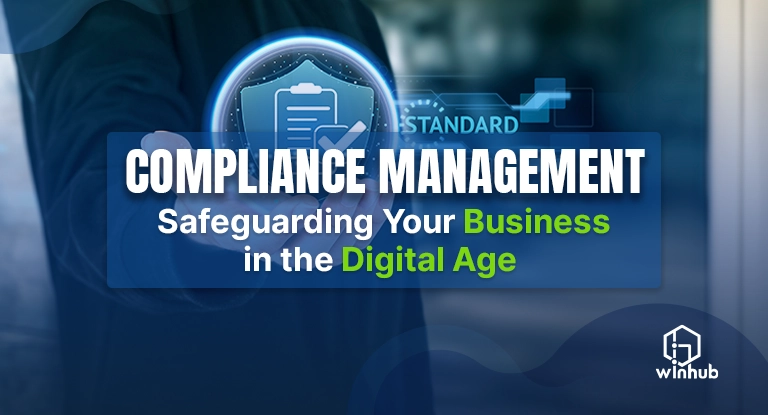In the constantly evolving digital terrain, businesses grapple with a multitude of challenges in preserving confidential data and upholding online security. A cornerstone within a robust risk management strategy, compliance management stands out as a vital facet ensuring organizations conform to industry-specific regulations and standards. For this reason, it’s essential to understand the significance of compliance management, its role in mitigating risks and the related components organizations should consider.
Compliance management, in simple terms, is the process of adhering to external laws, regulations and internal policies that govern an organization’s operations. In the digital era, where data privacy and security are paramount, compliance management plays a pivotal role in safeguarding not only sensitive information but also an organization’s reputation. It consists of a wide range of regulations, including but not limited to the General Data Protection Regulation (GDPR), the Health Insurance Portability and Accountability Act (HIPAA), and industry-specific standards that vary across sectors.
The Role of Compliance Management in Risk Mitigation
In the realm of technology, digital risks are always present. But with compliance management, your company can have sustainable protection against potential legal, financial and reputational repercussions. By aligning organizational practices with relevant regulations, businesses can proactively address potential vulnerabilities and enhance their effort to minimize various risks. It’s important to remember that compliance not only minimizes the likelihood of regulatory penalties but also encourages a culture of transparency and accountability within the organization.
1. Knowledge and Awareness
A solid foundation for compliance management begins with a thorough understanding of applicable regulations. Organizations must stay abreast of the latest developments in the regulatory area, ensuring that they are well informed about any changes that may impact their operations. This includes efforts to monitor updates, participate in industry forums, and engage with regulatory authorities.
2. Documentation and Auditing
Maintaining meticulous records and conducting regular internal audits are integral components of compliance management. It’s crucial to document policies, procedures and compliance-related activities that not only demonstrate a commitment to regulations but also provide a clear trail of compliance efforts. Internal audits are often used as dynamic measures to identify and rectify any deviations from established compliance protocols.
3. Integration with Business Processes
Compliance should be seamlessly integrated into the fabric of an organization’s business processes. Rather than viewing it as a standalone function, you should embed compliance considerations into decision-making processes, product development and day-to-day operations. This proactive approach ensures that compliance becomes an inherent part of the organizational culture.
4. Challenges in Compliance Management
While the importance of compliance management is indisputable, organizations often face challenges in navigating the complex regulatory landscape. One common hurdle is the dynamic nature of regulations, which can undergo frequent changes. If you want to stay ahead of these changes, you have to implement a suitable approach to compliance monitoring.
Moreover, the diversity of regulations across industries and regions adds another layer of complexity. Multinational organizations, in particular, must navigate a patchwork of regulations, each with its own set of requirements and nuances. This requires a personalized way of handling compliance that takes into account the unique circumstances of how the organization operates.
Strengthen Your Compliance Strategies with WinHub
If you’re struggling to navigate compliance-related complexities, WinHub is here to help. WinHub’s compliance services are tailored to be a guiding force in effective compliance management for your organization. From meeting the latest compliance requirements to implementing robust documentation and auditing processes, their services are designed to fortify your compliance framework. To learn more, visit WinHub’s Compliance, Contracts and Purchasing service page and strengthen your operational strategies with compliance experts.



